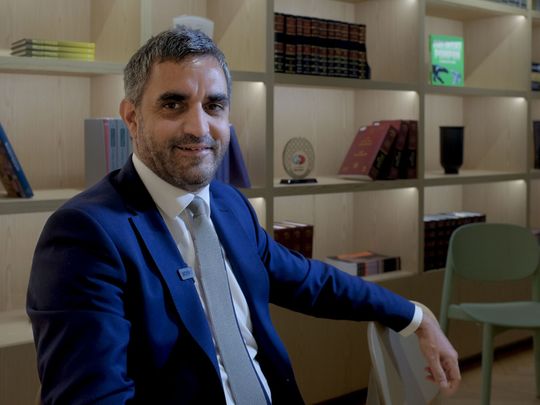
Dubai: UAE’s move to regulate crypto payments in real estate transactions should see early success given the sector is already quite well-regulated, according to a top lawyer.
On Monday, UAE announced that real estate agents will have to alert the special unit overseeing anti-money laundering activities of any property deal that gets paid in crypto assets. The law applies to individuals and legal entities, as well as transactions exceeding about $15,000.
“This is being done for the purpose of having more compliance and knowing the source of wealth,” said Michael Kortbawi, Partner at the law firm BSA Middle East. “In the standard banking system, there’s information on every individual trading or buying real estate in Dubai. But when you come from the crypto world, some of the funds can be illegal.”
Kortbawi, who specializes in insurance and acquisitions, said that Dubai’s real estate sector is already tightly regulated, which makes it easier to enforce new laws. “The agents have to follow several regulations when it comes to financial transactions.”
The UAE has been attempting to formalize its crypto market by approving several crypto exchange licenses. In April, Binance Holdings received in-principal approval from Abu Dhabi Global Market to operate as a broker-dealer in virtual assets. Prior to that, FTX, one of Binance’s biggest competitors, received a virtual asset service provider (VASP) license in Dubai.
Reduce reliance on OTCs
By opening the door for real crypto exchange houses, Dubai authorities reduce investors’ reliance on over-the-counter brokers, said Kortbawi. “The market is going to get more regulated and there will be fewer people getting scammed or not being able to get their money from the crypto they sold.”
The rise of cryptocurrencies has linked them to several other issues, such as market manipulation, scams, and risks related to money laundering, trafficking of illegal goods, hacking, identity theft, fraud, and unregulated business activities. This has put them under increased scrutiny from financial regulators and other institutions.
Consultancies have time and again highlighted the importance of having industry participants on board, while formulating policies that govern them. UAE authorities seem to be doing exactly that.
“A regulator always consults with everyone - we’ve consulted with regulators from different locations and these discussions have been about crypto and new technologies,” said Kortbawi.
Cryptocurrencies experienced a crash in June due to rampant inflation, which is forcing global central banks to hike their interest rates. Bitcoin, which reached around $64,000 last year in November, is currently trading at around $24,000.
Kortbawi said while the crash has reduced the asset’s ‘public appeal,’ serious investors will continue to trade. “The real hardcore investors at the heart of the movement will continue to do it, but the public appeal is less now because have realized that they can no longer double or triple their money..
“Maybe the tide will turn soon, but it’s hard to say anything given the overall economic situation.”











